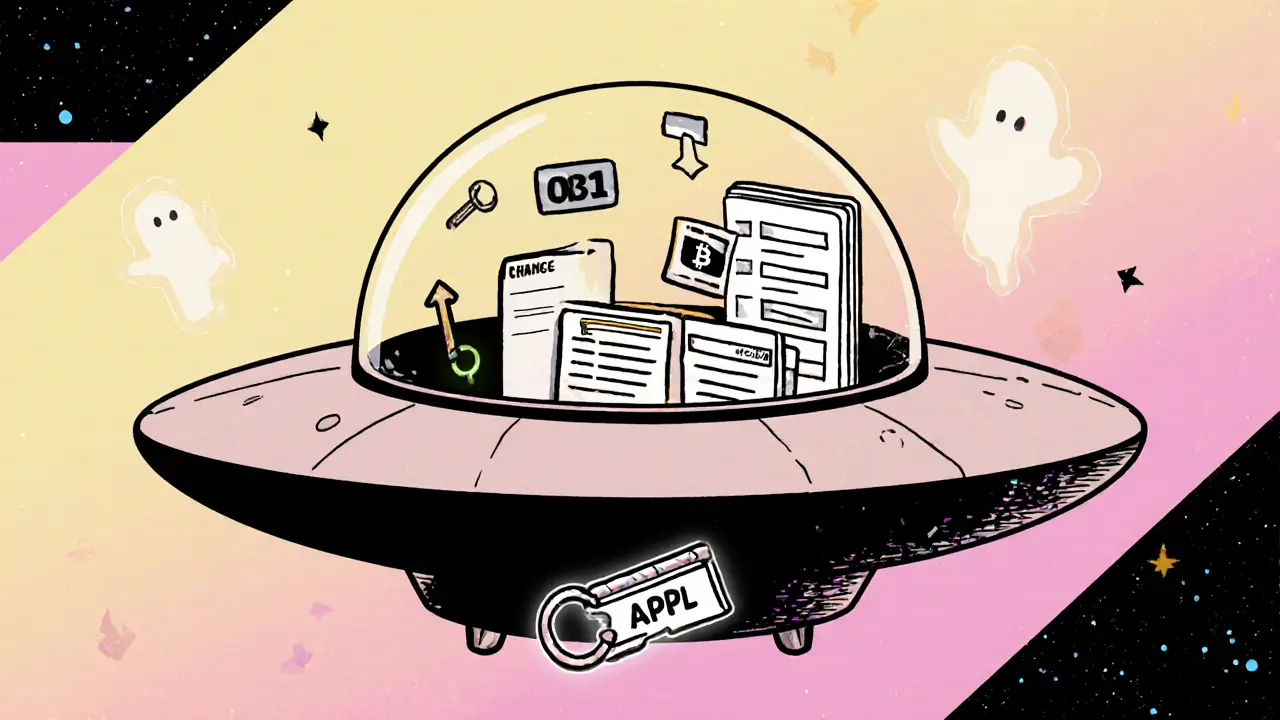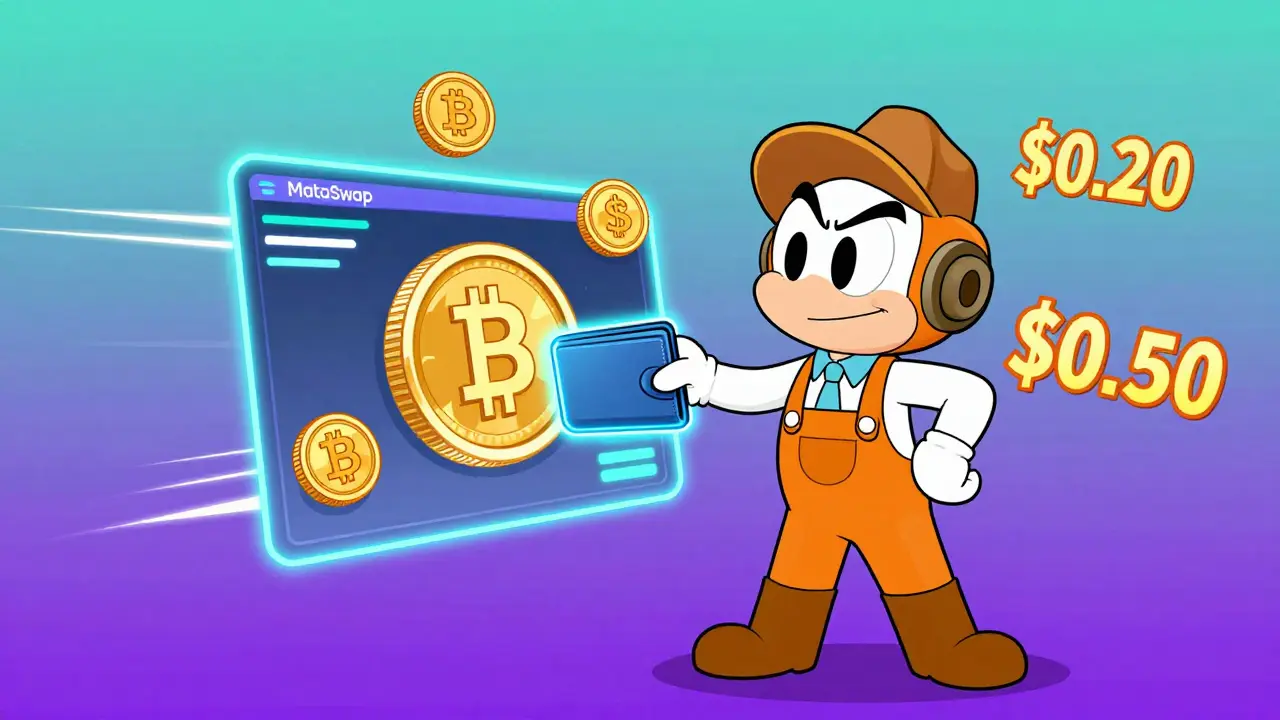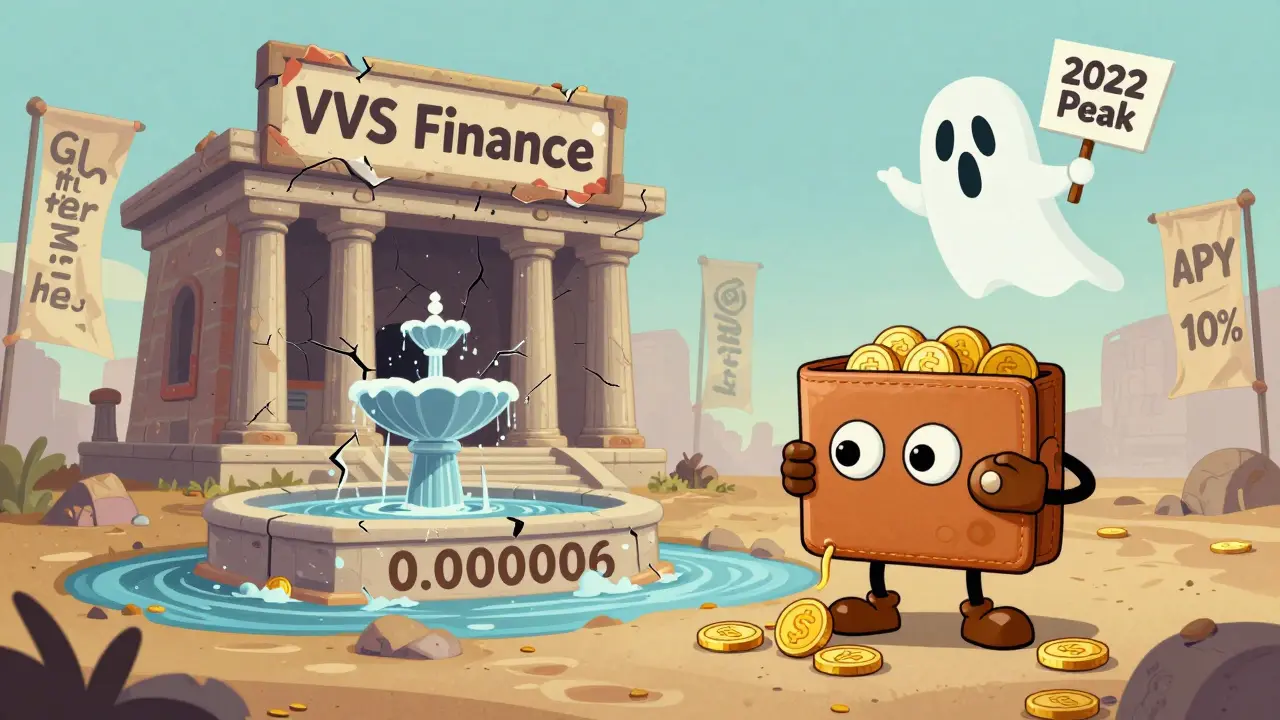Liquidity Impact Calculator
Calculate how trade size affects slippage on low-liquidity platforms. RubyDex currently has $0.0M TVL (Total Value Locked), meaning no liquidity exists in its pools. This tool demonstrates what happens when liquidity is absent.
$0.0M TVL
With zero liquidity, your trade cannot be executed. No funds are available in the platform's pools to match your order.
Imagine trading stocks, forex, and NFTs like you’re on Binance-except your wallet never leaves your control. That’s the promise of RubyDex, a crypto exchange that claims to merge the speed of centralized platforms with the security of decentralized ones. But here’s the catch: after over a year in the market, its Total Value Locked (TVL) is $0.0M. No trades. No liquidity. No users. Just a lot of bold claims.
What Is RubyDex, Really?
RubyDex isn’t another Uniswap clone. It’s a Layer-2 derivatives decentralized exchange (DEX) built for perpetual futures-think trading Bitcoin with leverage, but also Apple stock, gold, or a Bored Ape NFT-all on the same platform. Unlike traditional DEXs that only handle crypto, RubyDex says it taps into trillions in daily trading volume from traditional markets. That’s ambitious. But how?
The platform uses a hybrid model. The trading engine runs on centralized cloud servers for fast order matching, like what you’d find on Coinbase or Kraken. But your wallet? It only connects to the decentralized side. That means you never give up custody. No depositing funds to a wallet controlled by RubyDex. Your keys, your coins. That’s the big sell: CEX speed without CEX risk.
How Trading Works on RubyDex
If you’ve used a centralized exchange before, the interface will feel familiar. Limit orders, market orders, stop-losses-all there. No confusing DeFi jargon. You connect your MetaMask or WalletConnect wallet, pick your asset, and trade. No KYC. No identity checks. That’s a win for privacy-focused traders.
The platform supports perpetual futures on crypto, traditional assets, and NFTs. For NFTs, it pulls floor prices from OpenSea, Blur, LooksRare, and X2Y2. That’s clever. Instead of relying on manual price feeds, it uses live market data from the biggest NFT marketplaces. But here’s the problem: if no one’s trading, the order book is empty. And according to HittinCorners.com’s 2025 review, that’s exactly what’s happening.
Liquidity: The Missing Piece
Every DEX lives or dies by liquidity. Uniswap has millions in pools. GMX has over $300M. RubyDex? $0.0M. That’s not a typo. No funds are locked in its liquidity pools. Why?
RubyDex claims to use a unique system where liquidity providers (LPs) lend assets to professional market makers, earning flexible APYs based on what those market makers pay. Sounds great. But who are these market makers? Where are they? No names. No data. No proof. And without real liquidity, even the best order book is just a ghost town.
Compare that to Perpetual Protocol or GMX. They’ve spent years building deep liquidity through incentives, tokenomics, and partnerships. RubyDex hasn’t. It’s like opening a restaurant with a perfect menu but no ingredients. You can’t serve a meal if no one’s cooking.
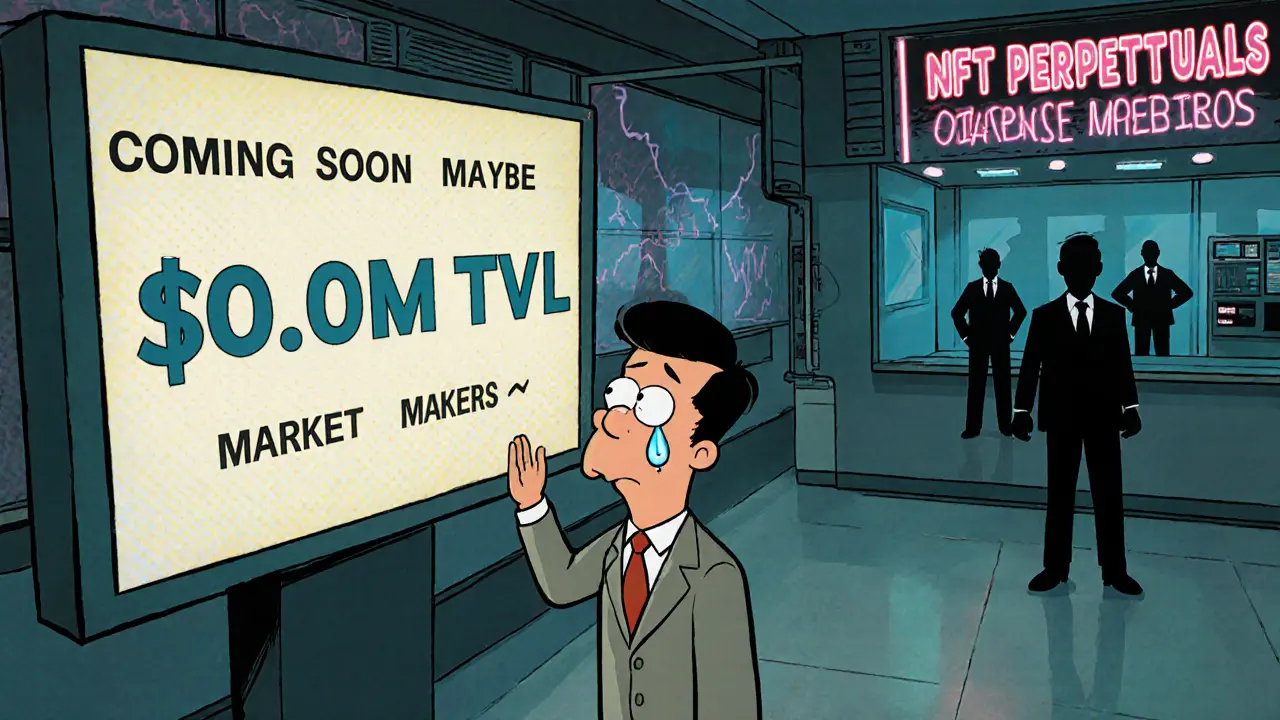
Why RubyDex Is Different (And Why That Matters)
Most derivatives DEXs stick to crypto. RubyDex doesn’t. It’s trying to bring stock trading-like Tesla or NVIDIA-to blockchain. That’s not just innovation. It’s a legal minefield.
The SEC has already shut down platforms like Ooki DAO for offering unregistered securities. Trading stock derivatives on a decentralized platform? That’s a red flag regulators won’t ignore. RubyDex hasn’t addressed this. No mention of compliance, no legal disclaimers beyond generic terms. If you’re a U.S.-based trader, you’re walking into uncharted-and potentially dangerous-territory.
On the other hand, if you’re outside the U.S. and want to trade NFTs with leverage, RubyDex might be the only place offering it. That’s a real niche. But again-no users. No volume. No proof it works.
How It Compares to the Competition
Here’s how RubyDex stacks up against the top derivatives DEXs:
| Platform | TVL | Asset Types | Order Book | Traditional Assets | NFT Perpetuals |
|---|---|---|---|---|---|
| RubyDex | $0.0M | Yes | Yes | Yes | Yes |
| GMX | $336M | Crypto only | Yes | No | No |
| Kwenta | $108M | Crypto only | Yes | No | No |
| Perpetual Protocol | $42M | Crypto only | Yes | No | No |
| Rage Trade | $18M | Crypto only | No (AMM) | No | No |
Notice the pattern? Every top player has real money behind them. RubyDex has ambition, but no traction. It’s the only one offering traditional assets and NFTs-but without users, those features are just buzzwords.
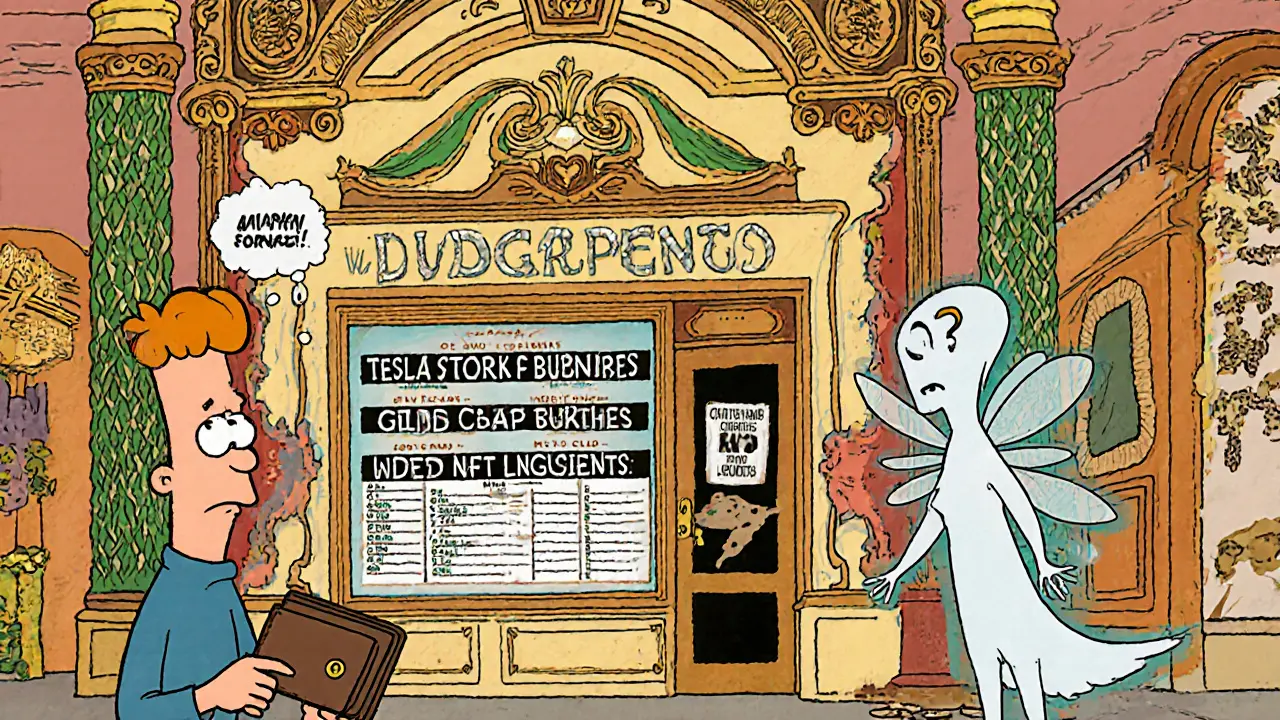
Is RubyDex Safe?
Technically, yes. Your funds stay in your wallet. The platform doesn’t hold them. That’s a major plus. No hacks of exchange wallets. No rug pulls from custodial keys.
But safety isn’t just about custody. It’s about reliability. If the order book is empty, your limit order won’t fill. If the price feed is stale, you’ll get liquidated on bad data. If the platform goes offline? No customer support. No community. No backup.
There are zero user reviews on Reddit, Trustpilot, or Twitter. No success stories. No complaints. Just silence. That’s not neutral. That’s a warning sign.
Who Should Use RubyDex?
Only one type of trader might benefit: someone who wants to experiment with NFT perpetuals or traditional asset derivatives and doesn’t mind risking time and gas fees on a platform with no liquidity.
If you’re looking to trade Bitcoin with 10x leverage and want deep order books? Go to GMX or Kwenta.
If you want to trade Apple stock on-chain? RubyDex is the only game in town-but it’s a game with no players.
For everyone else? Wait. Watch. See if volume picks up. See if market makers show up. See if the platform gets tracked on CoinMarketCap. Right now, it’s a prototype with no users.
Final Verdict: Too Early to Bet On
RubyDex has a compelling idea. Combining crypto, stocks, and NFTs on a single decentralized platform? That’s the future. But the future isn’t built on claims. It’s built on adoption.
Right now, RubyDex is a concept with a website. Not a platform. Not a marketplace. Not a community.
Its architecture is smart. Its ambition is bold. But without liquidity, without users, and without verifiable volume, it’s impossible to say if it will work. The crypto world is full of brilliant ideas that never took off. RubyDex might be one of them.
If you’re curious, connect your wallet. Try a small trade. Pay the gas. See what happens. But don’t expect miracles. And don’t put your life savings in.
For now, RubyDex is a ghost ship. Beautiful design. Empty decks. No crew. No destination.
